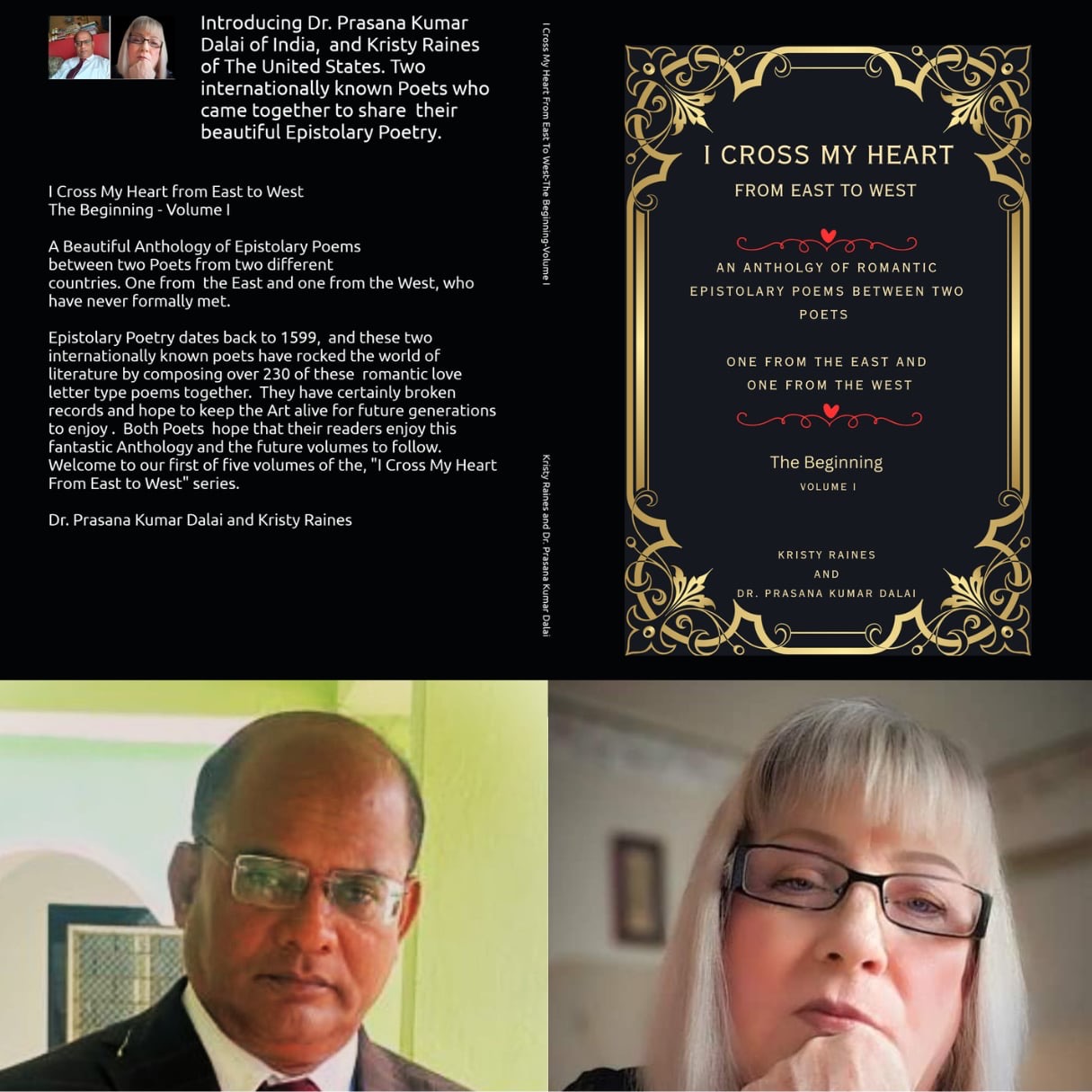
My poem DON’T EVER LOOK BACK reviewed by eminent reviewer Prof Dr Nirakar Dash & analysed by eminent reviewer & critic Raj Kishor Pattnaik.
I am really grateful to Nirakar Dash Sir and Dear Raj kishor Pattanik.
Humbled & Honoured.
DON’T EVER LOOK BACK !
Me trying to find someone for my road
To keep memory in your heart forever
I earnestly wish to have you by my side
Glide ahead in joyous stream of this life
Keep chanting & smiling like a free bird
Never let any grim thought tickle you
The road ahead is calling you aloud
Don’t ever look back and let’s proceed
This sombre night ‘ll pass as time ticks
Don’t let your hand slip away from mine
Call me back if you feel like losing again .
©®Dr Prasana Kumar Dalai@India.
Date. Mon, 17 june 2024.
REVIEW.
=======
The poem,”Don’t Ever Look Back”,by the eminent poet Dr Prasanna Kumar Dalai, is quite unique in which he gives vent to the ideality of his love.Trying with all his possibilities to find a life partner, he deems his beloved to be the only irreplaceable one.He promises to love her so much so that she can never erase him from her mind.Desiring closeness,he says:”I earnestly wish to have you by my side”Perhaps remaining away from him mean out of sight, out of mind.He exhorts her to go ahead in love gleefully without any doubts . The expression “free bird” hints that his love is not possessive.She will be given all latitude.”The road is calling aloud” indicate the poet’s dependency on her and once she has started loving, there should be a decidedness.In the poet’s words: Don’t ever look back and let us proceed “”The sombre night ” implies the dilemma she harbours in her mind about her future, which the poet asserts to be over after she comes to walk hand in hand.He being the fittest candidate in this selfish world, moving away from him will spell disaster for her.Sliping away from his hand will make her slip in roads of life.The word “chant” in the poem reveal the sacred nature of love one hardly comes by .congratulations and respect Prasanna Sir for contributing such a beautiful poem to the field of literature.
Dear Dr. Prasana Kumar Dalai and Prof. Dr. Nirakar Dash, Sir Namaskar
I extend my heartfelt congratulations to both of you for the magnificent poem “Don’t Ever Look Back” and its insightful review. Dr. Dalai, your poetic brilliance continues to illuminate the field of English literature, and Prof. Dr. Dash, your perceptive analysis adds profound depth to the understanding of this literary gem. Together, your collaboration showcases the power of poetry and literary critique, enriching the literary community.
Warm regards,
ANALYSIS.
========
Analysis of Prof. Dr. Nirakar Dash’s Review
In his review of “Don’t Ever Look Back,” Prof. Dr. Nirakar Dash offers a profound analysis that delves into the emotional and thematic core of Dr. Prasana Kumar Dalai’s poem. Dr. Dash begins by highlighting the unique nature of the poem, emphasizing its exploration of the ideality of love. He aptly captures the poet’s quest for a life partner, noting the earnest wish for everlasting closeness expressed in the line, “I earnestly wish to have you by my side.”
Dr. Dash’s interpretation of the metaphor “free bird” is particularly insightful, as it underscores the non-possessive nature of the poet’s love, portraying a relationship grounded in freedom and mutual respect. This observation aligns with the poem’s overall tone of encouragement and support, urging the beloved to proceed in life with confidence and joy.
The reviewer also draws attention to the poet’s sense of dependency and commitment, evident in the line, “The road is calling aloud.” This highlights the poet’s belief in the decisive nature of love, advocating for a forward-looking approach without hesitation. Dr. Dash’s interpretation of “The sombre night” as a representation of the beloved’s internal dilemmas is poignant, suggesting that these uncertainties will be resolved through mutual support and togetherness.
Moreover, Dr. Dash underscores the sacred nature of love, as implied by the word “chant,” signifying a rare and profound connection. His review eloquently conveys the poem’s message of unwavering support and companionship, affirming that slipping away from such a bond would lead to a profound loss.
In conclusion, Prof. Dr. Nirakar Dash’s review is a testament to his analytical acumen and deep appreciation for poetic nuances. His thoughtful and thorough examination of Dr. Dalai’s poem not only enhances our understanding but also celebrates the beauty and depth of literary expression.



